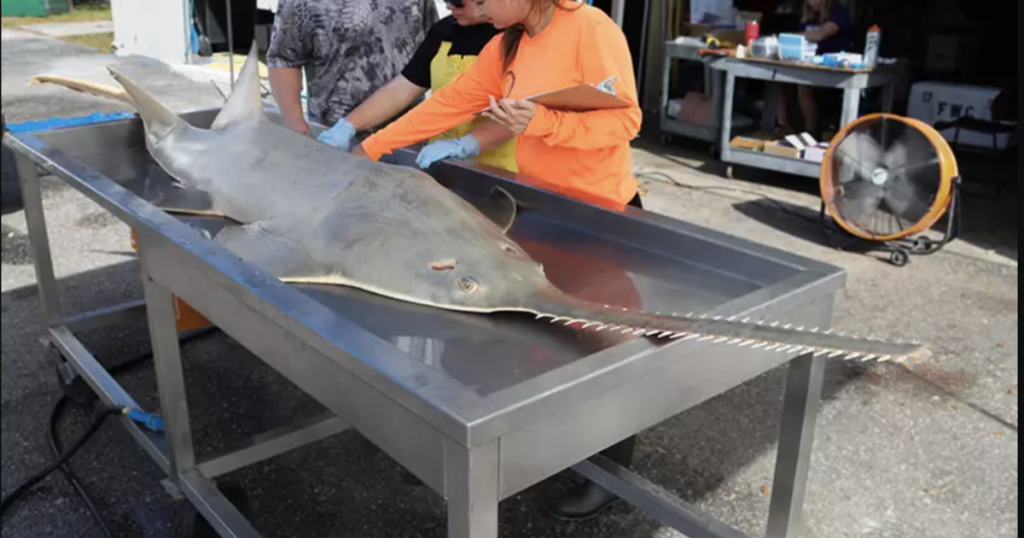Dozens of species of fish, including the endangered sawfish, have been exhibiting abnormal spinning and whirling behavior in the waters off the Florida Keys for several months, raising concerns among marine experts. Michael Crosby, the president and CEO of Mote Marine Laboratory, stated that no abnormal water quality parameters have been identified by environmental health agencies, suggesting that there is an unknown agent negatively impacting the fish species. Organizations such as Mote Marine Laboratory are working with the National Oceanic and Atmospheric Administration to investigate this phenomenon and determine the cause of the distress seen in the fish.
Despite the ongoing abnormal behavior of the fish, fishing in the area remains open, but the Florida Fish and Wildlife Conservation Commission advises against harvesting distressed or dead animals. Swimming in areas where dead fish are present is also not recommended as a precautionary measure. The cause of the spinning and deaths among the fish species is still unknown, but possible causes being considered include toxins or parasites. Research is ongoing to determine the exact agent responsible for this unusual behavior, with toxin or parasite exposure being suggested as potential factors.
Numerous aquariums and laboratories are collaborating with the NOAA to house and rehabilitate affected sawfish, including those from Mote Marine Laboratory. Rescued sawfish are being housed in quarantine facilities and will be rehabilitated with the intention of releasing them back into the wild once they have recovered. The impact of these events on the population of sawfish is a significant concern, as even a small number of deaths could have a detrimental effect on the recovery of the endangered species. Other species of fish, including various types of rays and sharks, are also being impacted by the spinning behavior, with a considerable impact on the marine ecosystem.
At least 109 sawfish have been affected by the unusual spinning behavior, with 28 documented deaths reported by the NOAA. Given the negative buoyancy of sawfish, the actual mortality rate may be higher, posing a threat to the recovery of the smalltooth sawfish species. Sawfish are endangered rays that are typically found in shallow coastal waters, with skeletons made of cartilage rather than bones. The affected sawfish vary in size, ranging from 7 to 14 feet in length, with other species such as Atlantic stingray, bonnethead shark, and nurse shark also being affected. The scientific community is actively working to identify the cause behind these abnormal behaviors and deaths in the fish population.
Michael Crosby noted that the spinning behavior observed among the fish, including sawfish, appears to be a neurological response to an unknown agent in the water. While researchers have ruled out common factors such as bacterial infection, dissolved oxygen levels, and salinity, the exact cause remains elusive. Water samples have tested negative for Red Tide toxins, which suggests that another type of toxin or parasite could be responsible for the distress seen in the fish. Collaboration between marine research institutions, government agencies, and environmental organizations is crucial in studying and addressing this mysterious phenomenon affecting the marine life in the Florida Keys.
Despite the ongoing investigations and monitoring efforts, the exact cause of the spinning behavior and deaths among the fish species in the Florida Keys remains unknown. With several organizations actively involved in research and rehabilitation efforts, there is hope for understanding and addressing this issue to preserve the health of the marine ecosystem. The impact on endangered species such as the sawfish underscores the importance of environmental conservation measures and proactive responses to emerging threats in marine environments. Continued monitoring and research will be essential in safeguarding the wellbeing of marine life and preserving the biodiversity of coastal waters in Florida and beyond.


